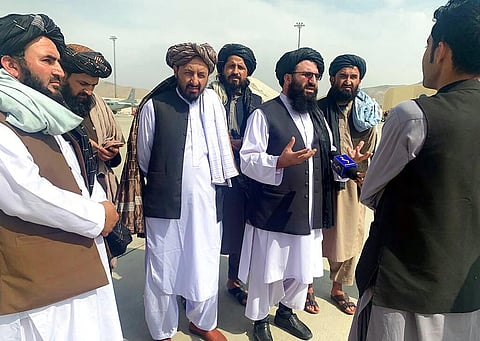

NEW DELHI: India on Tuesday acknowledged officially it was engaging with the Taliban. At the same time, it insists that the government in Afghanistan must be a democratic one.
There are reports that the Taliban is in discussions to form a government based on the Iran model to rule Afghanistan through a governing council, like in 1996.
“India’s pragmatic engagement with the Taliban this week in Qatar was long overdue and shows that New Delhi is finally adapting to the reality of that group’s de facto and likely irreversible rule over Afghanistan. This change in thinking might also have been influenced by last week’s call between Russian President Vladimir Putin and Prime Minister Narendra Modi considering Moscow’s active engagement with the group driven by its political and security interests,” Russia-based American analyst Andrew Korybko said.
Korybko said a Taliban government based on the Iran model shouldn’t concern India.
“Although India, as the world’s largest democracy, would ideologically prefer for its partners to emulate its governing model, it also has many other partners with different ones. India has pragmatic ties with military-led Myanmar and has come a lot closer to the Gulf Monarchies in recent years. Iran is also one of its strategic partners which shows that this model isn’t dangerous. India would show its foreign policy flexibility by respecting the de facto Taliban government’s planned embrace of the Iranian model instead of casting anti-democratic aspersions.”
While New Delhi has maintained, even while lending support to the Doha peace dialogue, that the outcome of the discussions must be Afghan-led, Afghan-controlled and Afghan-owned, the Taliban seems to favouring a governing council mode of governance.
Reports suggest the militia is holding discussions on formation of the council. It is likely that Haibatullah Akhundzada will head the governing council, which will have around 112 members.
Mullah Baradar is the frontrunner for prime minister. While Akhundzada is likely to function from Kandahar, the capital under the previous Taliban regime, Baradar might operate from Kabul.
Echoing Korybko’s views was a research scholar from Jawaharlal Nehru University. She felt now that India has decided to talk to the Taliban, it is important that they do not hesitate.
“With the official acknowledgment of engaging with Taliban, it is important India does not go back on the move unless the Taliban goes back on its words of having good ties with us. This must happen irrespective of whatever mode of governance they have in Afghanistan.”
The American analyst said this month’s BRICS and SCO Summits could provide the opportunity for India to coordinate its evolving policy towards Afghanistan with its institutional partners and therefore enable them to manage the situation more effectively.
“The special and privileged strategic partnership between Russia and India will likely have the greatest influence on shaping New Delhi’s policies, which shows how deeply they trust one another,” he added.
Jaishankar on three-nation trip
NEW DELHI: External Affairs Minister S Jaishankar will begin his three-nation Europe visit on Thursday. Discussions will likely revolve around Afghanistan and the European Union’s Indo-Pacific strategy. Jaishankar, upon the invitation of Slovenia, will attend an informal meeting of the EU foreign affairs council. He will also visit Croatia and Denmark on this trip.